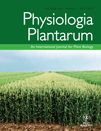
Journal of Physiological Anthropology
metrics 2024
Bridging Anthropology and Health for a Better Tomorrow
Introduction
The Journal of Physiological Anthropology, published by BMC, serves as a leading platform in the field of anthropological science with a strong focus on the physiological aspects of human adaptation and performance. Since its establishment in 2006, this open access journal has gained recognition for its contributions to understanding human biological variation through an interdisciplinary lens, enabling researchers and practitioners in fields such as anthropology, orthopedics, and public health to disseminate and access high-quality research. With an impressive impact factor and a classification in the Q1 quartile for Anthropology (2023), the journal holds a prominent position, ranked #29 in Social Sciences and #76 in Orthopedics and Sports Medicine according to Scopus. The journal's objectives include fostering innovative research and promoting discussions that advance knowledge on human performance, adaptation, and health in diverse environments. As a vital resource based in the United Kingdom and available freely since 2012, it opens avenues for collaboration and knowledge exchange among researchers, professionals, and students alike.
Metrics 2024
 0.50
0.50 3.30
3.30 2.90
2.90 60
60Metrics History
Rank 2024
Scopus
IF (Web Of Science)
JCI (Web Of Science)
Quartile History
Similar Journals

JOURNAL OF PSYCHOPHYSIOLOGY
Exploring the Intersection of Psychology and PhysiologyJOURNAL OF PSYCHOPHYSIOLOGY, published by Hogrefe Publishing Corp, serves as a crucial platform for the dissemination of research in the interdisciplinary fields of neuropsychology, physiological psychology, and neuroscience. With an ISSN of 0269-8803 and an E-ISSN of 2151-2124, this journal has been a staple in the academic community since its inception in 1987 and will continue to publish impactful research until at least 2024. Despite the absence of Open Access, the journal maintains a significant presence, holding Q3 and Q4 quartile rankings in relevant disciplines according to the 2023 metrics. Researchers and practitioners benefit from the journal's robust focus on integrating psychophysiological research with practical applications, contributing to a better understanding of psychological processes through physiological insights. As evident from its Scopus rankings, the JOURNAL OF PSYCHOPHYSIOLOGY is dedicated to fostering scholarly dialogue and advancing knowledge in the field, making it an essential resource for anyone invested in the intricacies of human behavior and the physiological underpinnings thereof.

Conservation Physiology
Fostering collaboration for global ecological sustainability.Conservation Physiology is a premier scholarly journal published by Oxford University Press, dedicated to advancing the understanding of physiological processes in the context of conservation and environmental science. Established in 2013 as an Open Access platform, it has rapidly gained recognition within the academic community, featuring research that spans various critical areas such as ecological modeling, management, monitoring, policy, and law. With its impressive impact in the field, Conservation Physiology holds a notable rank in Scopus and boasts quartile distinctions, reflecting its influence and contribution to Nature and Landscape Conservation. This journal serves as a vital resource for researchers, professionals, and students engaged in conservation efforts, providing them with a comprehensive understanding of how physiological insights inform effective conservation strategies and policies. Through its commitment to open access, Conservation Physiology ensures that vital research is readily available, fostering collaboration and innovation in the pursuit of global ecological sustainability.

American Journal of Physiology-Regulatory, Integrative and Comparative Physiology
Pioneering Comparative Studies in Physiological ResearchThe American Journal of Physiology-Regulatory, Integrative and Comparative Physiology, published by the American Physiological Society, serves as a premier platform for disseminating cutting-edge research in the fields of physiology, emphasizing regulatory, integrative, and comparative studies that advance our understanding of bodily functions. With an ISSN of 0363-6119 and E-ISSN of 1522-1490, this esteemed journal is recognized for its substantial impact, maintaining a 2023 Q2 ranking in both the physiology and medical physiology categories as well as commendable positions in Scopus rankings. The journal has been pivotal since its inception in 1977 and continues to foster interdisciplinary dialogue among researchers, professionals, and students alike, contributing significantly to the evolving landscape of physiological sciences. Although it operates under a traditional subscription model, its commitment to high-quality, peer-reviewed content ensures that it remains an essential resource for anyone engaged in physiological research and education.

JOURNAL OF EVOLUTIONARY BIOCHEMISTRY AND PHYSIOLOGY
Bridging Evolutionary Theory and Biochemical InnovationJOURNAL OF EVOLUTIONARY BIOCHEMISTRY AND PHYSIOLOGY, published by PLEIADES PUBLISHING INC, is a pivotal periodical that delves into the intricate relationships between biochemical processes and evolutionary dynamics. With its ISSN 0022-0930 and E-ISSN 1608-3202, this journal serves as a comprehensive platform for researchers, professionals, and students dedicated to understanding the physiological adaptations and biochemical mechanisms influenced by evolutionary pressures. Although it is not an open access journal, it offers valuable insights across its historically significant coverage spanning from 1972 to 2017, making it an essential resource for those working in agricultural, biological, and molecular sciences. Despite its current Scopus rankings revealing limited visibility within its fields, the journal remains committed to fostering scholarly dialogue and advancing knowledge in the realm of evolutionary biochemistry, especially for those exploring the ecological, genetic, and integrative physiological aspects of life.

AMERICAN JOURNAL OF HUMAN BIOLOGY
Championing Interdisciplinary Insights in Human BiologyAmerican Journal of Human Biology (ISSN: 1042-0533, E-ISSN: 1520-6300) is a well-respected publication in the field of human biology, published by Wiley. Since its inception in 1989, the journal has provided a critical platform for advancing human biological research, featuring articles that encompass a wide range of interdisciplinary topics including anatomy, anthropology, ecology, evolution, and genetics. It has consistently achieved high impact, reflected in its prestigious quartile rankings such as Q1 in anthropology and Q2 in anatomy for 2023. With its robust Scopus rankings, notably ranking #10 in medicine - anatomy, the journal serves not only researchers but also professionals and students aiming to keep abreast of the latest developments in human biology. While the journal currently does not offer open access, it remains a vital resource for those committed to understanding human biological realities and challenges in an evolving global landscape. Its insightful contributions are indispensable in promoting scholarly dialogue and advancing knowledge across multiple relevant fields.

PHYSIOLOGIA PLANTARUM
Exploring the Molecular Mechanisms of Plant LifePHYSIOLOGIA PLANTARUM, published by WILEY, is a prestigious journal in the fields of plant science, physiology, and genetics, known for its impactful contributions since its inception in 1948. With an impressive impact factor and a consistent ranking in the Q1 and Q2 quartiles, it stands out in critical disciplines such as cell biology and biochemistry, ranking #24 in Plant Science with a remarkable 95th percentile standing. This journal primarily serves researchers and professionals committed to advancing the understanding of plant functions, responses, and their molecular mechanisms. Its broad scope allows for a diverse array of studies, ensuring that groundbreaking research is accessible to the global scientific community. Although it does not offer Open Access, PHYSIOLOGIA PLANTARUM remains a vital resource for scholars looking to stay at the forefront of plant biology and related fields.

FISH PHYSIOLOGY AND BIOCHEMISTRY
Charting New Waters in Fish Physiology ResearchFISH PHYSIOLOGY AND BIOCHEMISTRY, published by Springer, is a leading journal in the fields of aquatic science, biochemistry, and physiology, with an impressive trajectory since its inception in 1986 and continuing through 2024. Operating from the Netherlands, this journal serves as a vital platform for researchers, professionals, and students alike, showcasing innovative studies that explore the physiological and biochemical aspects of fish, contributing significantly to our understanding of aquatic ecosystems and their inhabitants. With a robust impact factor reflected in its Q1 status in Aquatic Science and notable rankings in other relevant categories, FISH PHYSIOLOGY AND BIOCHEMISTRY maintains a strong scholarly influence, evidenced by its Scopus ranking within the top quartiles of various biological sciences disciplines. While the journal does not currently offer open access options, it remains a cornerstone for advancing knowledge and fostering collaboration within the community dedicated to aquatic biology and related fields.

JOURNAL OF THEORETICAL BIOLOGY
Innovating Insights into Complex Biological SystemsJOURNAL OF THEORETICAL BIOLOGY, published by Academic Press Ltd - Elsevier Science Ltd, stands as a pivotal source of scholarly research in the domains of theoretical and applied biological sciences. Since its inception in 1961, this esteemed journal has contributed significantly to the advancement of knowledge across various fields, including agricultural sciences, applied mathematics, biochemistry, genetics, immunology, and medical research. With a commendable Q2 ranking in multiple categories for 2023, it showcases robust impact throughout the academic community, reflected in its high Scopus rankings, which place it in the top 25% of journals in several categories. The journal's commitment to fostering interdisciplinary research supports its objective of bridging theoretical frameworks with practical applications, making it an essential resource for researchers, professionals, and students alike. With its wide-ranging topics and a keen focus on innovation, the JOURNAL OF THEORETICAL BIOLOGY is indispensable for those seeking to explore the complexities of biological systems and their mathematical modeling.

Journal of Experimental Zoology Part A-Ecological and Integrative Physiology
Advancing ecological insights through integrative physiology.The Journal of Experimental Zoology Part A - Ecological and Integrative Physiology, published by WILEY, is a distinguished peer-reviewed journal focusing on ecological and evolutionary physiology, providing a robust platform for research that bridges both ecological and integrative physiological concepts. With an impressive impact factor and recognition as a Q1 journal in both Animal Science and Zoology and Ecology, Evolution, Behavior and Systematics in 2023, it positions itself as a leader in advancing our understanding of organismal biology and environmental interactions. The journal is committed to open access, offering researchers and professionals worldwide the opportunity to share and disseminate their findings freely. Since its inception in 2017, it has rapidly gained prominence—ranking within the top percentiles of Scopus Ranks across several disciplines, including genetics and molecular biology. This not only underscores its relevance but also highlights its vital role in facilitating interdisciplinary approaches essential for addressing contemporary biological challenges. Researchers, educators, and students alike will find in this journal a valuable resource for cutting-edge studies and innovative methodologies in the field.

PHYSIOLOGICAL AND BIOCHEMICAL ZOOLOGY
Unraveling the Complexities of Zoological SciencesPhysiological and Biochemical Zoology is a distinguished peer-reviewed journal published by University of Chicago Press, focusing on the interrelated fields of animal physiology, biochemistry, and zoology. With a strong commitment to advancing scientific understanding, this journal serves as a vital resource for researchers, professionals, and students alike, providing a platform for the latest findings and advancements in the field. Ranking in the top quartile (Q1) in Animal Science and Zoology as of 2023, and showcasing a substantial convergence of historical data from 1999 to 2023, its impact in the academic community is underscored by its engagement with high-quality research. While it also appears in the third quartile for Biochemistry and Physiology, the journal successfully integrates these disciplines, reflecting the complexity of biological systems. Available for reading via various access options, this journal is essential for anyone seeking to deepen their knowledge or contribute to the field of Zoological sciences.